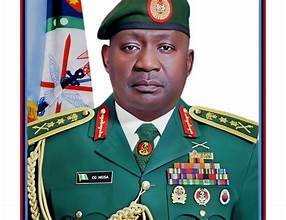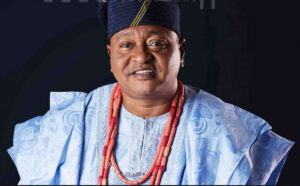Succession: Fidelity of Leadership – Tribune Online
[ad_1]
The lifespan of an individual is finite while that of a corporate body is infinite. According to a popular author, “We come, we go but life goes on. We leave the organisation in a better shape than we met it.” In other words, the organisation is beyond ourselves or rather, it outlasts us.
Running an organisation enables us to work with known and unknown players. The organisation must outlast us if the will and resources are available. Rules are changeable and also, the fundamental objective and goal to prolong the existence of the company.
Leaders run the organisation to improve the system, create good corporate governance, and ensure unique and stronger culture. The quality of relationship and trust with the internal and external publics are on a regular basis, worked and improved upon by the practical and visionary leader.
One thing that stands that leader out is the capacity for a strategic direction that enables a profound and constant shift for the company to remain relevant and profitable: it is called the capacity for existential flexibility.
Ups and downs in the economy and fierce competition by rivals are constant and beyond the leader’s control but the only variable he can work on is what is inside the organisation. How can he put the conditions in place to ensure and engender trust? How do you care for and empower your people so that they voluntarily follow you? How do you fully activate the unbelievable potential of your people? Is your impact on the lives of your people so reassuringly successful that the “triangle” in human resource management is realized? Their heads, hands and hearts must be fully and profitably put to work.
We must create an environment whereby authority is subtly de-emphasized and the people feel valuable. This ensures loyalty, trust, commitment and devotion by making those who are inherently in charge to be accountable. Let them try and fail, and thereby learn from their mistakes. Accountability lies with those in charge and not the chain of commands or instructions for compliance.
Your people must be inspired to feel safe, always give their best and find solutions together. They must not be weak links. People must come first, not numbers because in times of trouble, they will be the ones to rescue the organisation with new ideas and value-adding creativity as well as innovation.
Let them say we love the culture in which we work. I have the power to do my job. I am given what I need to do my job better. I am trusted to do the right thing. I am more concerned about the customer than myself: I have listening leaders and this alleviates my stress, anxiety, tension and frustration. I am convinced that I am accepted and appreciated.
You must also ask yourself whether as a leader, and in order to successfully lead the people, you practice self-awareness, self-reflection and self-regulation or what we call self-leadership.
Achieving and entrenching the above will give a sure fillip to the fidelity of that hallmark of leadership which is the desirable and successful succession of one leader to the other. Fidelity is the degree to which a system accurately reproduces an input, an input that of course, continues the job and also shapes existential flexibility.
I midwifed, to the glory of GOD, my succession planning process in the Mutual Benefits Group, an international value-adding conglomerate where I was Chief Executive as well as the Chief Strategist.
Let us therefore use Mutual Benefits Assurance Plc, a strategic player in Nigeria’s and West Africa’s financial industry as our case study.
Mutual Benefits’ famous “Wind of Change”, a hallmark document on the second 5-year strategic change cycle was launched in May 2007. It carefully spells out the aspirations of the company to grow into an “organically transformed and strategically positioned brand that must evolve into a global brand”. The document communicated the ‘transformational goals’ and the corporate growth strategy for the company to “become the clear leader and flagship of the Nigerian Insurance Industry” by 2015.
In its over 21 years’ history, one thing that stands Mutual Benefits out among its peers in the productive sector of the Nigerian economy is this strategic 5-year change cycles which have been successfully rolled-over thrice. The fourth 5-year cycle was tagged “A 5-year strategic roadmap.”
A retreat was held to fully “sit-in” our strategic plan. It re-evaluated goals and strategies and defined parameters for the next three years that would enable Mutual Benefits achieve industry leadership. According to Dale Carnegie, our consultant, “the overall goal was simply to put Mutual Benefits on the path of not only becoming the industry leader in its markets but also staying well ahead of its competitors”.
These change cycles have profoundly promoted unique insights into understanding the fundamental purpose of building sustainable leadership and leadership development. The approaches have indeed, reassuringly impacted the team and other stakeholders by engendering ownership and execution. A very interesting advantage is that it guarantees a strategically consciously competent workforce that is readied at all times to play higher and more challenging roles.
Using the words of Teresa Amabile and Steven Kramer; “we are able to build a cadre of employees who have satisfying inner work lives, consistently positive emotions, strong motivations and favorable perception of the organization, their work and their colleagues”. Strategic freshness creates forward momentum in meaningful work. Deliberate efforts guarantee common standardized vocabulary, common set of frameworks and of course, tools.
Through various, regular and consistent strategy sessions, we make team members comfortable and fully competent to do strategic tasks. Just like what MSU (Michigan State University) online says; team members are regularly updated with latest data, process knowledge and skills to develop continuously changing strategy. The leader as a coach and mentor, continuously and consciously creates awareness among team members that each individual is a critical and indispensable part of the whole.
Mutual Benefits’ leadership strategy which is focused on corporate sustainability from inception in October 1995 has the following objectives:
Entrenching purpose and structure
Creating an environment where people are not afraid to speak-up and listened to.
Consistently getting and processing and progressively utilising feedbacks from team members.
Turning talent to performance by stressing the indispensability of individual employees’ contributions and actions.
Creating and assuring hope for the future.
Systematically seeking the truth from the team, customers and competition.
Non-dependence on a single visionary leader.
Talent-pooling through leadership development instead of importing ‘stars’
Africa is a terrain where succession, even in big companies, is not a common thing. Usually it is forced on individual companies when there is a crisis or by governments (for government-owned companies), or changes in regulatory and policy provisions.
We have been able to scale through this conundrum in Mutual Benefits and the organization, no doubt, is indeed the better for it.
YOU SHOULD NOT MISS THESE HEADLINES FROM NIGERIAN TRIBUNE
Nigeria Needs Stingy Leader To Develop — Obi
THE standard-bearer of the Labour Party (LP) in the February 25 presidential poll, Mr Peter Obi, on Tuesday, said the country needs a stingy leader to develop in all sectors…
Atiku Discusses Economy, Security With UK Government Officials
The presidential candidate of the Peoples Democratic Party (PDP), Atiku Abubakar, has met with officials of the British government to discuss issues bordering on economy, security, and immigration among others that are likely to be of mutual interest if he is elected the president of Nigeria…
Dear Nigerians, Resident Doctors May Go On Nationwide Strike (See Details)
The Nigerian Association of Resident Doctors (NARD) has warned to go on a nationwide strike if the federal government does not meet its demands…
What Makinde Must Do To Retain His Seat — Abdusalam, Ex-Oyo AG
Aare Abdulsalam Abdullah, a chieftain of the Peoples Democratic Party (PDP) and ex-Attorney General and Commissioner for Justice, Oyo State, in this interview with OLAWALE OLANIYAN, spoke about the chances of the re-election of Governor Seyi Makinde…
Lagos Port Operator Increases Export Charges, Threatens Nigeria’s Export Promotion
[ad_2]














Post Comment